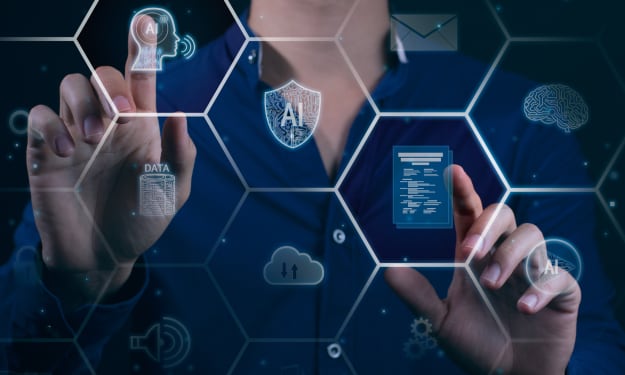
Introduction:
Education plays a vital role in shaping individuals, communities, and societies at large. It is a powerful tool that empowers minds, fosters personal growth, and drives societal progress. This article explores the significance of education in society, highlighting its multifaceted impact on individuals, communities, and the overall development of a nation. By understanding the importance of education, we can recognize the transformative potential it holds and advocate for equitable access to quality education for all.
Section 1: Empowerment and Personal Development:
Education serves as a catalyst for personal growth, enabling individuals to develop their intellectual, social, and emotional capacities. It equips them with knowledge, skills, and critical thinking abilities necessary for navigating the complexities of life. Education empowers individuals to make informed decisions, pursue their aspirations, and contribute meaningfully to society. It fosters a sense of self-confidence, autonomy, and a lifelong passion for learning. This section explores the various ways education empowers individuals, including the acquisition of knowledge, development of skills, and enhancement of critical thinking abilities.
Section 2: Social and Economic Mobility:
Education is a powerful tool for social and economic mobility. It provides opportunities for individuals from diverse backgrounds to break free from the cycle of poverty and discrimination. Through education, individuals acquire the skills and qualifications needed to access better job prospects, higher incomes, and improved living standards. Education reduces social inequalities, promotes social cohesion, and contributes to the overall well-being of communities. This section delves into the relationship between education and social mobility, discussing how education acts as a vehicle for upward social mobility and improves the overall socio-economic conditions of individuals and communities.
Section 3: Promotion of Democracy and Citizenship:
Education is fundamental to nurturing active and engaged citizens in a democratic society. It equips individuals with the knowledge of their rights, responsibilities, and the functioning of democratic institutions. Education fosters civic participation, critical thinking, and respect for diversity. It empowers individuals to engage in informed discussions, advocate for social justice, and actively contribute to the democratic process. This section examines the role of education in promoting democratic values, active citizenship, and social cohesion within a society.
Section 4: Economic Development and Innovation:
Education plays a pivotal role in driving economic development and fostering innovation. A well-educated workforce is essential for the advancement of industries, technological progress, and the growth of a knowledge-based economy. Education nurtures creativity, problem-solving skills, and entrepreneurial spirit, enabling individuals to generate new ideas, start businesses, and contribute to economic prosperity. Investments in education lead to long-term economic benefits, increased productivity, and enhanced competitiveness on a global scale. This section explores the interplay between education, economic development, and innovation, highlighting how education shapes the economic landscape and drives sustainable growth.
Section 5: Social Cohesion and Cultural Preservation:
Education acts as a bridge between diverse cultures, promoting social cohesion and understanding. By providing opportunities for cultural exchange, education fosters mutual respect, appreciation, and dialogue among individuals from different backgrounds. Education also plays a crucial role in preserving cultural heritage, traditions, and values, ensuring their transmission to future generations. It contributes to a sense of identity, pride, and social harmony within communities. This section examines how education promotes social cohesion, preserves cultural diversity, and fosters intercultural dialogue.
Section 6: Health and Well-being:
Education is intricately linked to health and well-being outcomes. It equips individuals with knowledge about healthy lifestyles, disease prevention, and healthcare practices. Education empowers individuals to make informed decisions regarding their own well-being and that of their families. Furthermore, educated individuals are more likely to access higher-quality healthcare, leading to better health outcomes and reduced healthcare disparities. This section explores the connection between education and health, discussing how education enhances health literacy, promotes healthy behaviors, and contributes to overall well-being.
Conclusion:
The importance of education in society cannot be overstated. It is a fundamental right that empowers individuals, transforms communities, and drives societal progress. Education fosters personal development, promotes social mobility, and contributes to economic growth and innovation. It nurtures active citizenship, social cohesion, and cultural preservation. Moreover, education is crucial for improving health outcomes and ensuring a better quality of life.
To harness the full potential of education, it is imperative to prioritize and invest in education systems worldwide. Governments, policymakers, and stakeholders must work collaboratively to ensure equitable access to quality education, regardless of socio-economic background, gender, ethnicity, or geographical location. This includes addressing barriers such as lack of infrastructure, teacher shortages, gender disparities, and poverty-related issues that hinder access to education.
Furthermore, educators play a vital role in shaping the educational experience. They should be supported with professional development opportunities, adequate resources, and recognition for their valuable contributions. By nurturing a passionate and dedicated teaching workforce, we can enhance the quality of education and inspire students to reach their full potential.
Parents, families, and communities also have a crucial role to play in supporting education. They can create a conducive learning environment at home, engage in their children's education, and promote the value of education within their communities.
By recognizing the transformative power of education and advocating for equitable access to quality education for all, we can build a more inclusive, prosperous, and sustainable society. Education is the cornerstone of progress and holds the key to unlocking the potential of individuals, transforming communities, and shaping a brighter future for all.






Comments
There are no comments for this story
Be the first to respond and start the conversation.